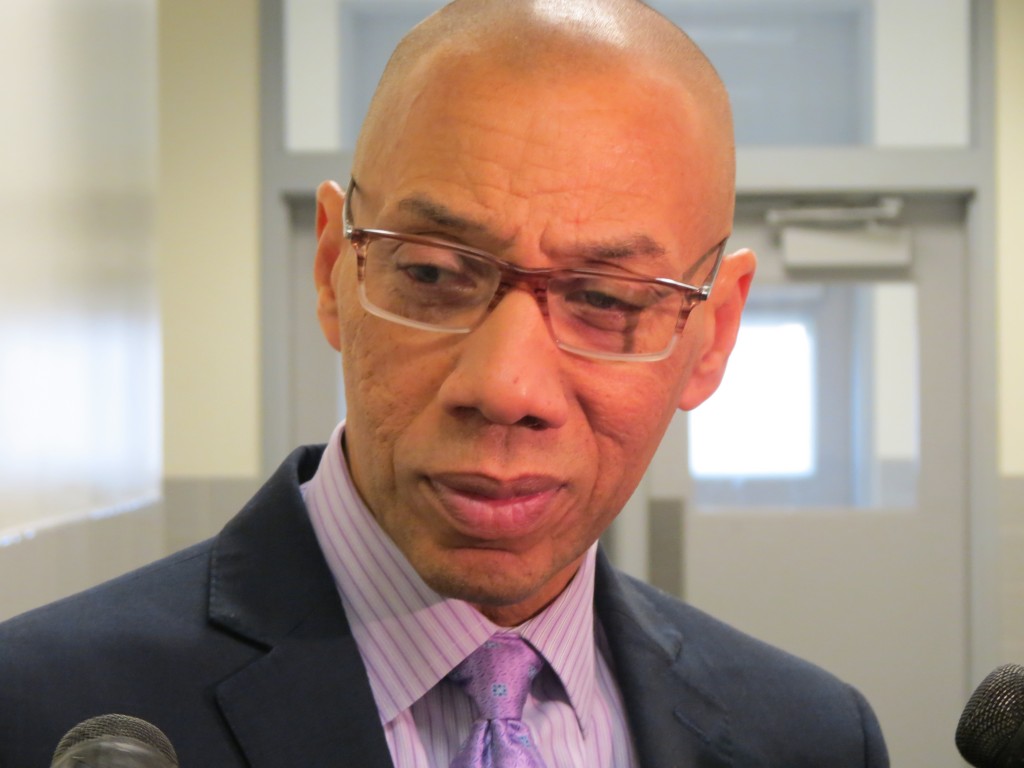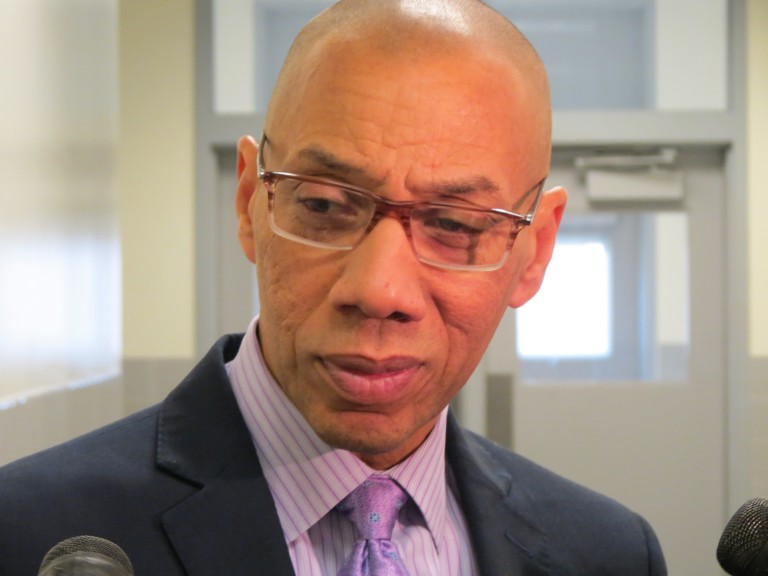
Schools Chancellor Dennis Walcott has repeatedly defended the mayor’s educational policies, which have taken serious heat from borough legislators, parents and civic leaders who have panned them as dismissive of the community’s concerns. With the departure of Bloomberg, borough leaders said they are hoping Mayor-elect Bill de Blasio will take a more parent- and community-friendly approach to the educational landscape in Queens. Anna Gustafson/The Forum Newsgroup
The emphases may vary, from alleviating overcrowded classrooms to ensuring parents’ voices are heard, but the message to Mayor-elect Bill de Blasio from legislators and educational leaders in Queens is a unified one: Do not repeat the Bloomberg era when it comes to public schools.
What, exactly, that message will entail, and how it will play out in a borough that has been hit by a string of school closures under Bloomberg and has long fought notoriously jampacked classrooms, has, of course, yet to be seen, but legislators are hurrying to reform mayoral control in an effort to at least ensure that the city’s head honcho will no longer have the kind of domination that Bloomberg has since the state Legislature, in an historic move, gave the current mayor control of the country’s largest public school system.
Assemblyman David Weprin (D-Little Neck) is sponsoring legislation in this upcoming session in Albany that would change the makeup of the city Panel for Educational Policy – a decision-making group dominated by mayoral appointees that votes on education plans for the city’s public schools, including the controversial closures of large community high schools and co-locations that Bloomberg has pushed through since 2002. Under the mayoral control legislation, the PEP was formed – and while it holds public meetings at which outraged parents often scream into the early morning hours, the group has been known as a rubber stamp for Bloomberg because he appoints the majority of the 13-member panel.
Weprin’s bill would keep the number of appointees at 13, but the mayor would no longer have the majority of appointments. Each borough president would, as they do now, appoint one member each, the mayor would select five individuals, and the others would be chosen by the city public advocate and the City Council.
“I’m sure the new de Blasio people will argue things will change without this, but he said we need more parental input and community input – by having more appointments, you’ll have more input,” Weprin said.
“The new mayor will have his own agenda, but I don’t think he’ll be as hostile to changes as Mayor Bloomberg was,” Weprin continued.
A representative for de Blasio did not respond to requests for comment for this article.
Borough President-elect Melinda Katz too said she supports changes to the PEP, though she stressed that she likes “having someone to yell at and to applaud.”
“I think having someone at the helm is an important thing,” said Katz, who, like lawmakers across the borough, noted that the de Blasio administration must focus on reducing class size in Queens. She also criticized the outgoing mayor over school co-locations and charter schools.
“I think Mayor Bloomberg was an advocate of co-locations and charter schools to the point where some of the real basic purposes of the Department of Education system was lost,” Katz said. “We need to make sure that every kid who wants to go to a high school gets a good education, and we need to do a neighborhood-to-neighborhood assessment to make sure that’s happening.
While de Blasio had, as of The Forum’s press time, not announced a schools chancellor, it is rumored that he is expected to pick Carmen Farina – who served as second-in-command to Bloomberg’s first chancellor, Joel Klein, years ago. While she served under Klein, she has been known to share much of de Blasio’s vision of education, including a wariness of standardized testing.
Dmytro Fedkowskyj, Borough President Helen Marshall’s appointee to the PEP, said he worked with Farina while he was a member of Community Education Council 24.
“She engaged the community,” he said. “I found her to be very receptive to ideas and be well-spoken and professional…. I think she’d make a great chancellor.”
Dean of the School of Education at Queens College Craig Michaels stressed many similar points, saying he hopes that the de Blasio camp will have less of an obsession with data – including loosening the city’s tightly wound grip on standardized testing, improve relations with teachers, and once again work with the City University of New York schools. He also praised de Blasio for the mayor-elect’s plan to implement a universal pre-kindergarten program.
“In some ways, Bloomberg wanted to push his agenda in spite of, or without trying to collaborate with, CUNY,” Michaels said. “The CUNYs are the single largest source of teachers in the five boroughs – there’s a preparation program in every borough, and Queens College is one of the biggest. When you invite them to the table, the things that happen have to be better.”
“I’m hoping the new mayor will continue to work with us,” Michaels continued.
By Anna Gustafson

